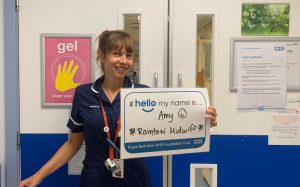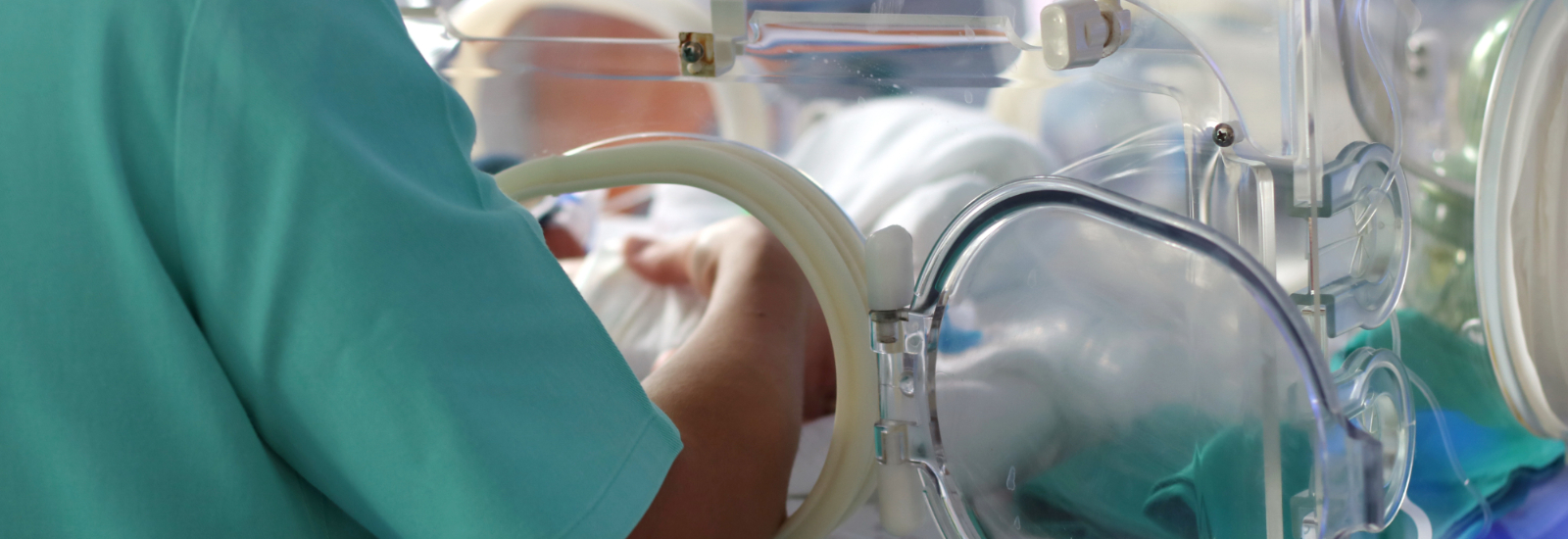Amy Wood, Reading graduate and Midwife, shares with CONNECTED how despite her concerns about COVID-19, she found the strength to continue providing care to families in need.
 Amy works at the Royal Berkshire Hospital (RBH) as an NHS Specialist Fetal Medicine Midwife. She supports families who are coping with difficult diagnoses and pregnancy/baby loss.
Amy works at the Royal Berkshire Hospital (RBH) as an NHS Specialist Fetal Medicine Midwife. She supports families who are coping with difficult diagnoses and pregnancy/baby loss.
Previously, during the COVID-19 pandemic, Amy worked as a Bereavement Midwife, supporting families who have sadly suffered a miscarriage, stillbirth or neonatal death. To enable midwives to continue caring for patients, while striving to protect all parties from the virus, the RBH undertook huge changes. Amy shares with CONNECTED her experience of supporting and caring for patients during the pandemic.
From history to midwifery
Amy studied a Joint Honours BA in Classical and Medieval History, followed by an MA in Medieval History at the University of Reading. Amy explains how, despite thoroughly enjoying her time at Reading, she ended up on a different career path to the one she had envisaged.
Amy said: “I loved my time at Reading, although my subjects there were a bit different to what I do now. I chose to study at Reading because I knew it to be a good university, it was in the right location for me and I found the staff to be friendly and supportive.
“I initially imagined I’d have a career in academia and I stayed on at Reading for a PhD. However I got side-tracked by having children, who ultimately altered my course of career choice.
“Having my own children made me question what I wanted from a career; I’d had a challenging time with the birth of my first child and I felt drawn to becoming a midwife.
This feeling didn’t subside, and after my fourth child I decided to work as a Maternity Care Assistant, to see if I was comfortable changing from an academic career to a hospital career. After having my sixth child I knew that midwifery was the right choice for me and I was fortunate to be accepted for a BSc in Midwifery at the University of West London.
“My interest in supporting bereaved families began during my time as a student midwife, and when I became a newly qualified midwife in 2012 I still felt passionate about extending my knowledge and experience so that I could provide good care in this area. I found caring for bereaved families to be emotional and heart-breaking, but also rewarding to be able to help those who needed it the most. This led me to become a Bereavement Midwife in 2014, and I have enjoyed the wealth of humble learning that comes from caring for these families.
“While my studies at Reading do not directly relate to what I do now, I wouldn’t change my time there for the world.
“Reading is part of the journey my life has taken, and what I learnt there definitely supported me with the academic aspect of my midwifery degree, helping me to achieve my rewarding career.”
Caring during COVID-19
Amy’s role is challenging under normal circumstances, and has become even more so during the pandemic as restrictions and extra protocols have been brought into place for both staff and patient safety.
Amy explains: “As a Bereavement Midwife, I counsel families around tests such as post-mortems, signpost families for counselling and support memory making. I also liaise with the Registry Office, Coroner, mortuary and funeral directors to help arrange funerals, while also working closely with the Consultant Obstetric team to arrange follow-up appointments for these families. I am then involved should these families become pregnant again with, what we call, their ‘Rainbow’ pregnancy and provide antenatal care alongside the obstetric team, navigating families through this challenging journey.
“We are all still trying our best to deliver these services during COVID-19, but it has undoubtedly had a big impact.
“For example, just the simple act of having to wear a mask and maintain social distance has been hard when all you want to do is give a comforting smile and an arm around the shoulder. I hope that people can see the compassion shining through our eyes and creeping above the mask instead.
“Another big impact is that we had to stop facilitating families coming back to the hospital to spend time with their babies following their loss. However, a positive to come out of this was the development of a process to enable families to take their baby home directly from the delivery suite if they wished. The Willows Support Group – made up of a group of parents in the Reading area who have all lost babies at various stages – kindly funded the purchase of two cuddle cots, which allows the family to spend a longer amount of time with their baby.
“I felt anxious going into a hospital setting when the pandemic was at its peak. However, I drew strength from providing care to families during such a challenging time – regardless of COVID-19, these families were still going through their own personal turmoil and still needed people like me to be there for them.”
Making a difference
Despite the fact her work can be challenging, Amy is proud to work for the NHS as a Bereavement Midwife.
She said: “Although the work can be emotionally and physically challenging, I know that at the end of the day I have made a difference. I believe in the NHS as a positive institution in the UK, and I am motivated by making a tangible difference to the families who we provide care for.
“COVID-19 has been an extremely difficult time for all those working on the frontline, and for all those who have suffered as a result of it. I’m so proud to have been able to continue providing care for my women and their families despite the unprecedented circumstances we are facing.”
Find out more about how our inspirational alumni are working on the frontline during the pandemic.





